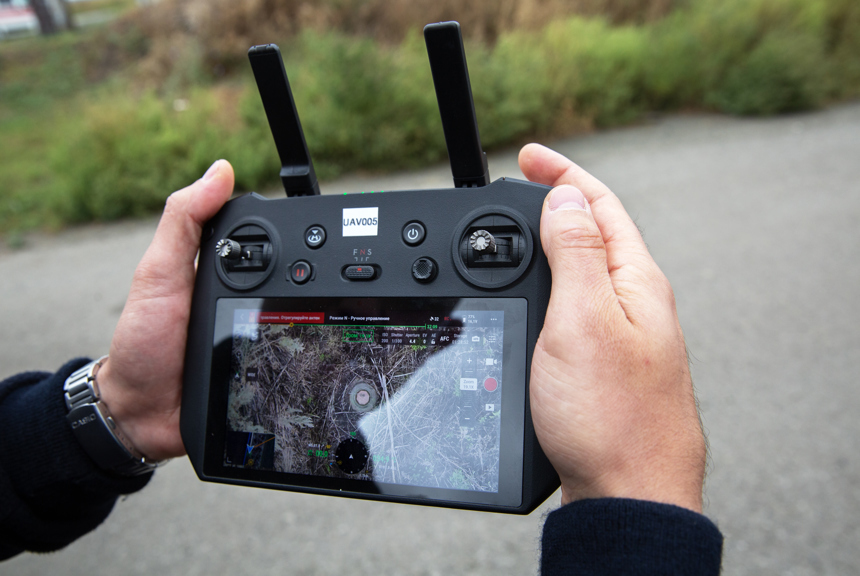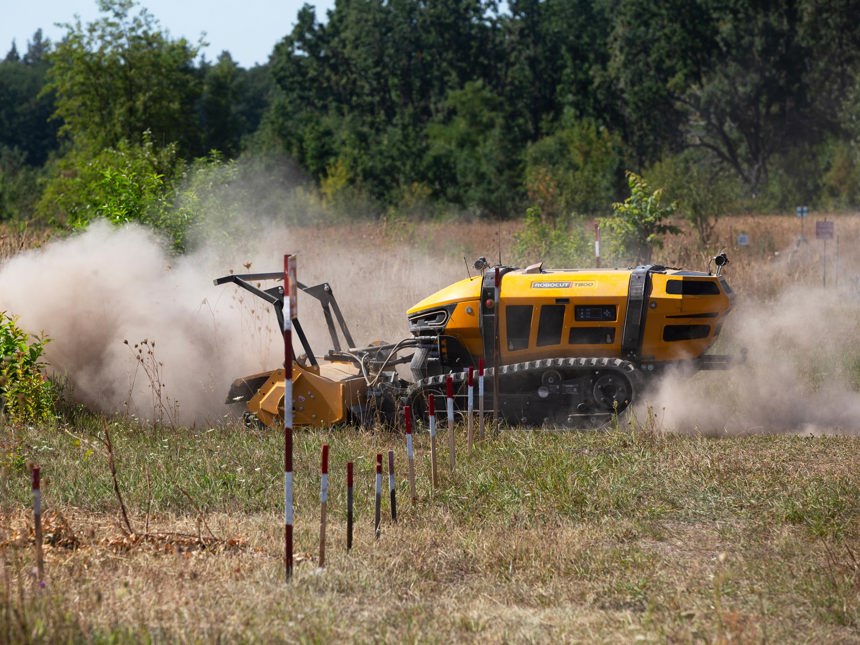As we move further into the 21st century, the global challenges we face continue to evolve. One constant remains—the devastating impact of landmines and explosive remnants of war (ERW). These silent killers claim thousands of lives each year, leaving behind a legacy of fear and uncertainty, limiting access to essential services and stifling economic recovery.
This is where technology can, and must, play a pivotal role. By leveraging the latest innovations, we can make mine clearance safer, faster, and more efficient, reducing the human toll of conflict and offering hope to those living under the shadow of landmines. Some advancements we are witnessing today in technology—drones, artificial intelligence, machine learning, and robotics—are improving the way we approach mine action. However, with the right concentration of resources even more can be achieved.
Unchartered Ground
Transforming Landmine Clearance with Non-Technical Survey Approaches
The scale of the challenge in Ukraine is driving innovative approaches, leveraging drones and AI analysis to better inform risk-management decisions about reduction and cancellation, in turn reducing costs of unnecessary clearance. The increasing commoditisation of drones, and the greater availability of high-resolution satellite imagery will continue to improve the accuracy of non-technical survey in the future and should be considered integral to the process.

Beyond The Surface
Innovations in Detection Technology for Safer Landmine Clearance
In a perfect world, every signal excavated would lead to the discovery of an item of explosive ordnance. However, detectors currently used across the sector search predominantly for metal or for disturbances in the ground (ground penetrating radar). In doing so, it is inevitable that clutter in the ground, such as scrap metal, will result in a false positive.
The solution is to explore the range of detection methods that search directly for explosive compounds. One example is the partnership between HALO and MRead an Australian-based company, may have the answer. Using magnetic resonance technology, MRead are developing a detector, which they hope will enable the detection of explosives in the soil (rather than the metal elements within the mine as has traditionally been the case).

Breaking New Ground
Cutting Edge Solutions for Mine Clearance
The clearance of explosive contamination in rural areas in many of the countries HALO works is not a straightforward process. Dense vegetation, trip wires, and booby traps pose challenges to manual deminers, resulting in slow and inefficient clearance efforts.
In such contexts, manual clearance is not effective and investment in mechanical assets to either clear explosives or prepare land for quicker manual clearance has been essential.
One such machine is the Robocut, which both removes vegetation in advance of detector search, but also cuts through tripwires, improving both the safety and the speed of clearance operations. This is an example of how commercial off-the-shelf technology from another industry, with minor modifications (such as remote camera systems), can be applied to demining.

Clearing the Path
Innovative Solutions for Urban Recovery in Humanitarian Mine Action
The global population is increasingly urban, with over half the global population currently residing in urban areas, and the UN projects this to reach 70 per cent by 2050. As more conflicts are occurring within urban settings as opposed to traditional rural battlefields, HALO is adapting and advancing new technologies to overcome these distinct challenges.
HALO is prioritizing mechanical clearance in countries such as Yemen and Libya. Using armoured vehicles such as front-loaders and excavators. These heavy-duty machines can sift through dense rubble to identify hazardous items efficiently and safely.
In addition, HALO is exploring an Urban Recovery Programme, which views rubble as a valuable resource for community reconstruction, identifying that recycled materials can be used for essential infrastructure like roads and flood defenses.



